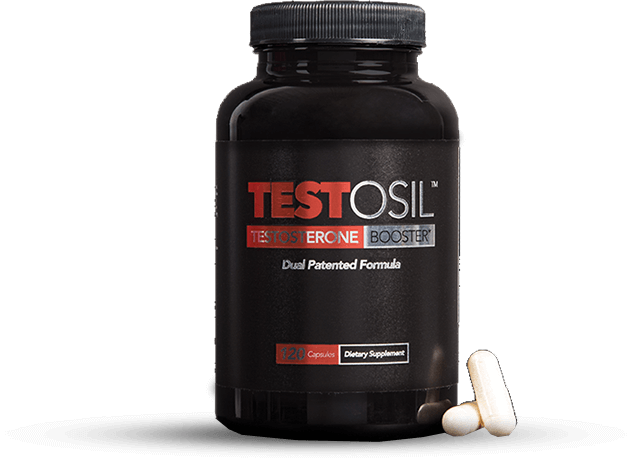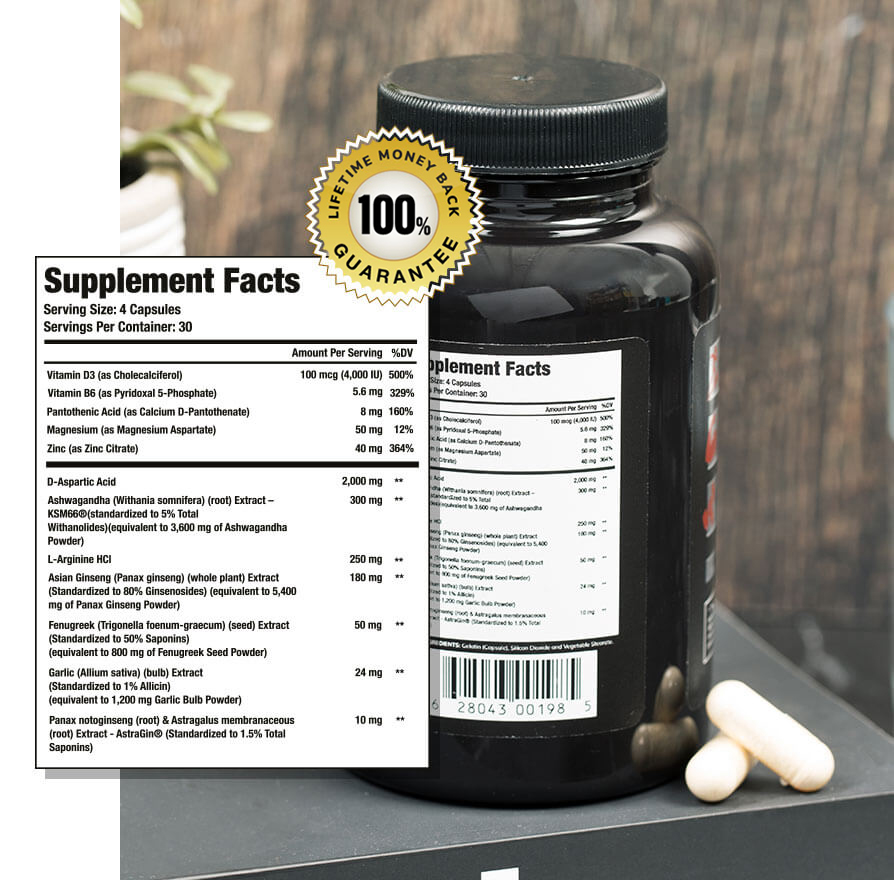Testosterone is a key hormone for men, playing a big role in their health and happiness. But, many men face the issue of low testosterone levels. This can cause physical and emotional problems. This guide will show ways to naturally increase testosterone levels. It aims to help men get their hormones balanced and improve their life quality.

Key Takeaways
- Testosterone is essential for men’s health, affecting energy, muscle mass, libido, and more.
- Factors like age, lifestyle choices, and medical conditions can impact testosterone levels.
- Natural methods, such as diet, exercise, and targeted supplements, can help boost testosterone.
- Testosterone replacement therapy may be an option for some individuals, but it requires medical supervision.
- Regular testing and monitoring of testosterone levels are crucial for maintaining optimal hormonal balance.
Understanding Testosterone
Testosterone is a key hormone for men’s health and well-being. It’s the main male sex hormone. It helps with muscle growth, bone strength, and even mood.
What is Testosterone?
Testosterone is made mainly in men’s testicles and a bit in women’s ovaries. It helps make men’s sexual traits, like facial hair and a deep voice. It also helps build muscle.
Roles of Testosterone in the Body
- Muscle growth and strength
- Bone health and density
- Red blood cell production
- Libido and sexual function
- Mood and energy levels
- Cognitive function and memory
Testosterone also helps control other hormones like estrogen and cortisol. These hormones affect our health. Keeping testosterone levels right is key for a healthy life.
“Testosterone is a crucial hormone that shapes the physical and mental characteristics of men throughout their lives.”
Knowing how testosterone works in our bodies helps us keep it healthy. This is important for our overall health and wellness.
Signs of Low Testosterone
It’s important to know the signs of low testosterone to fix this common hormonal issue. Symptoms range from less desire for sex to gaining weight unexpectedly. Understanding these signs helps men take steps to keep their testosterone levels right. This is key for their health and happiness.
One clear sign is feeling less interested in sex. Men with low testosterone often don’t want sex as much. This can make relationships and happiness suffer. They might also have trouble getting or keeping an erection, which affects their sex life.
Feeling tired all the time is another sign. Men with low testosterone often don’t have enough energy, even after sleeping well. They might lose muscle and get weaker because testosterone helps build and keep muscles strong.
- Decreased sex drive
- Difficulty achieving or maintaining erections
- Fatigue and lack of energy
- Muscle loss and decreased strength
Changes in mood, like being more irritable, depressed, or having trouble focusing, can also show low testosterone. This hormone keeps mood and thinking in check. Without enough of it, a man’s mental and emotional health can suffer.
| Symptom | Description |
|---|---|
| Decreased Libido | A diminished interest in sexual activity due to low testosterone levels. |
| Erectile Dysfunction | Difficulty achieving or maintaining erections, a common consequence of testosterone deficiency. |
| Fatigue and Lack of Energy | Constant tiredness and difficulty maintaining energy levels throughout the day. |
| Muscle Loss and Decreased Strength | Noticeable decline in muscle mass and overall physical strength. |
| Mood Changes | Increased irritability, depression, and difficulty concentrating due to hormonal imbalance. |
Knowing these signs of low testosterone helps men take action. They can work to fix the issue and improve their health and happiness.
Factors Affecting Testosterone Levels
Keeping testosterone levels in check is key for good health. Many things can change these levels, both good and bad. Knowing what affects them helps people make better choices for their health.
Age
Age is a big factor in testosterone levels. As men get older, they make less testosterone. This drop starts around 30 and gets faster over time. It can cause less muscle, less interest in sex, and feeling tired.
Lifestyle Choices
What you do every day also changes your testosterone levels. Things like diet, exercise, stress, and sleep play a big role.
- Diet: Eating right can help your testosterone production. Bad foods can hurt your hormone levels.
- Exercise: Working out, especially lifting weights and HIIT, boosts testosterone levels. Sitting around can lower it.
- Stress: Too much stress can mess with your hormones, making less testosterone. Stress-reducing activities like meditation can help.
- Sleep: Good sleep is key for healthy testosterone levels. Not sleeping well can hurt your hormone balance.
Knowing what affects testosterone levels lets people make better choices for their health and happiness.
Natural Ways to Boost Testosterone Levels
Keeping your testosterone levels healthy is key to feeling good. Luckily, you can boost this important hormone naturally. By changing your diet, nutrition, and exercise, you can support your hormonal health. This can lead to more testosterone.
Diet and Nutrition
Eating the right foods is a great way to boost testosterone naturally. Foods full of vitamins, minerals, and healthy fats help make testosterone. Here are some top food choices:
- Healthy fats from avocados, nuts, seeds, and fatty fish
- Protein-rich foods like lean meats, eggs, and legumes
- Enough zinc and vitamin D for testosterone making
- Less processed and sugary foods to keep hormones balanced
Exercise
Working out regularly is also great for boosting testosterone. Some exercises work better than others. Try adding these to your routine:
- Strength training with weights or resistance
- High-intensity interval training (HIIT) for testosterone boost
- Compound exercises like squats and deadlifts for more muscle groups
With a diet full of nutrients for testosterone and a good exercise plan, you can control your testosterone levels. This leads to better health and balance.

| Nutrient | Role in Testosterone Production | Food Sources |
|---|---|---|
| Zinc | Essential for testosterone synthesis | Oysters, red meat, poultry, beans, nuts, and seeds |
| Vitamin D | Regulates testosterone production and metabolism | Fatty fish, egg yolks, fortified dairy products, and sunlight exposure |
| Healthy Fats | Provide building blocks for testosterone production | Avocados, nuts, seeds, olive oil, and fatty fish |
“Optimizing your diet and exercise routine can have a profound impact on your testosterone levels, leading to improved overall health and well-being.”
Supplements for Increasing Testosterone Levels
There are many ways to boost testosterone levels, including using dietary supplements. These supplements can help along with lifestyle changes and medical treatments. Let’s look at some top supplements for raising testosterone levels.
Vitamin D
Vitamin D is key for testosterone levels. Studies show that low vitamin D levels are linked to lower testosterone. Taking vitamin D supplements can help increase testosterone and balance hormones.
Zinc
Zinc is vital for making testosterone. It helps control and produce this hormone. Getting enough zinc, through food or supplements, keeps testosterone levels healthy, especially for older people or those with zinc shortages.
Ashwagandha
Ashwagandha, an ancient herb, can boost testosterone. It’s been shown to raise testosterone in stressed or infertile individuals. Taking ashwagandha may support hormonal balance and health.
“Maintaining optimal testosterone levels is crucial for overall health and well-being. Supplements can provide a valuable addition to a comprehensive approach to boosting and supporting this essential hormone.”
Before starting supplements, talk to a healthcare professional. They can help with dosage, timing, and safety. Using these supplements with a healthy diet, exercise, and lifestyle changes can help improve testosterone levels and health.


TestosilTM has been shown in clinical studies to increase testosterone levels by 434%. Click here to learn more about the products.
Testosterone Replacement Therapy
Testosterone replacement therapy (TRT) helps people with low testosterone levels. It’s for those who have symptoms of hypogonadism, a condition where the body doesn’t make enough testosterone.
Types of TRT
There are different ways to get testosterone therapy, each with its own way of delivering the hormone:
- Injections: You get testosterone shots every 1-4 weeks.
- Gels: You apply testosterone gels on your skin for steady absorption.
- Patches: You wear testosterone patches on your skin for a long time.
Risks and Side Effects
Testosterone therapy can help with low testosterone, but it has risks and side effects:
- It might increase the risk of prostate problems, like cancer or BPH.
- It could lead to sleep apnea, which means you stop breathing while you sleep.
- There’s a chance of heart problems, such as heart attacks or strokes.
- It might harm your liver or make it work less well.
- You might feel more aggressive or depressed.
Always talk to a healthcare provider before starting testosterone therapy. They can help you understand the risks and benefits. It’s important to watch for any bad effects while taking this therapy.
“Testosterone replacement therapy should be approached with caution and under the guidance of a qualified medical professional.”
Testosterone Levels and Fertility
Keeping testosterone levels in check is key for good health and male fertility. This hormone is crucial for making sperm, sexual function, and getting pregnant. It’s the main hormone in men that affects these important parts of making babies.
Low testosterone can lower sperm count and quality, making it harder to have a baby. On the other hand, too much testosterone can also hurt fertility by reducing sperm production. So, it’s important to keep testosterone levels just right for fertility.
The Link Between Testosterone and Male Fertility
Testosterone helps the male reproductive system work right. It makes sperm, controls sexual desire, and keeps the testes, prostate, and other organs healthy. If testosterone levels get out of balance, it can mess up the chances of getting pregnant.
- Low testosterone can cause fewer and lower quality sperm, making it tough to conceive.
- Too much testosterone can also hurt fertility by making less sperm and affecting sperm health.
Men trying to have a baby should focus on a healthy lifestyle. This means eating well, exercising, and managing stress. Sometimes, doctors may need to step in with treatments like testosterone therapy or medicine to help with fertility problems.
| Factor | Impact on Testosterone and Fertility |
|---|---|
| Age | As men get older, testosterone levels drop, which can lower fertility. |
| Lifestyle Choices | Stress, being overweight, and not moving enough can hurt testosterone and fertility. |
| Medical Conditions | Some health problems, like testicle injuries, hormonal issues, or chronic illnesses, can affect testosterone and fertility. |
Understanding how testosterone and fertility are connected helps men take steps to improve their fertility. This can increase their chances of having a family.
“Maintaining a healthy testosterone balance is crucial for male fertility, as it directly impacts sperm production and overall reproductive function.”
Testing for Low Testosterone
Figuring out if you have low testosterone levels is key to solving any problems. Testosterone is a vital hormone that helps with many body functions. Knowing your levels is crucial for good health and wellbeing. Luckily, there are ways to check your testosterone levels.
Blood Tests for Testosterone Levels
The most common way to check for low testosterone is with a blood test. This test shows how much testosterone is in your blood. There are two main blood tests for testosterone levels:
- Total Testosterone Test: This test looks at the total testosterone in your blood, including free and bound testosterone.
- Free Testosterone Test: This test focuses on the unbound, or “free,” testosterone in your blood. This is the most active form.
Your healthcare provider will look at these test results to see if your testosterone levels are normal or low.
Importance of Proper Diagnosis
It’s crucial to get your testosterone levels checked by a doctor. Trying to figure it out on your own or using online symptom checkers can be risky. It might lead to wrong treatments or missing the real cause of low testosterone. If you think you might have low testosterone, make an appointment with your doctor to talk about your symptoms and get tested.
| Test | Normal Range | Symptoms of Low Testosterone |
|---|---|---|
| Total Testosterone | 300-1,000 ng/dL | Decreased sex drive Erectile dysfunction Fatigue Decreased muscle mass Mood changes |
| Free Testosterone | 5-25 pg/mL | Same as above |
Testing for low testosterone is the first step to fix any hormonal issues. By working with your healthcare provider, you can understand your testosterone levels better. This helps you take steps to improve your health and wellbeing.

Lifestyle Changes for Optimal Testosterone Levels
Boosting testosterone isn’t just about supplements or doctor’s orders. Making lifestyle changes can greatly improve your hormone health. By changing your habits, you can naturally increase testosterone and feel its many benefits.
Stress Management
Too much stress can hurt testosterone levels. It’s key to manage stress well. Try relaxation methods like meditation, yoga, or deep breathing to lower cortisol and balance your hormones.
Sleep Optimization
Good sleep is vital for making testosterone. Aim for 7-9 hours of sleep each night and keep a regular sleep schedule. Stay away from blue light before bed and make your bedroom sleep-friendly to better your sleep and testosterone.
Weight Management
Keeping a healthy weight helps with testosterone. Do regular workouts like strength training and high-intensity intervals to build muscle and lose fat. Eat a diet full of healthy fats, proteins, and complex carbs to help your testosterone.
Balanced Lifestyle
Living an active and balanced life can really help your testosterone. Do different kinds of exercises, including weight lifting and cardio. Make sure you get enough sunlight, as vitamin D is key for making testosterone.
By making these lifestyle changes, you can boost your testosterone and improve your health. Remember, a holistic approach that covers many parts of your life is best for reaching optimal testosterone levels and enjoying the benefits.
Myths and Misconceptions About Testosterone
There are many myths and misconceptions about testosterone that can confuse people. One myth is that more testosterone means more aggression or muscle. But, testosterone’s effects on muscle growth and energy are complex and vary from person to person.
Some think testosterone replacement therapy (TRT) can fix low energy or sexual issues right away. But, TRT should only be done with a doctor’s advice because it has risks and side effects. With a doctor’s help and making healthy lifestyle changes, TRT can help with low testosterone issues.
Some also believe that supplements or “testosterone boosters” can greatly increase testosterone levels. While some supplements might help a little, they’re not a replacement for a good diet, regular exercise, and treating health problems that might be causing low testosterone.
FAQ
What is testosterone and what are its primary roles in the body?
Testosterone is the main hormone for males. It helps with muscle growth, bone health, and sexual function. It’s key for overall well-being.
What are the common signs and symptoms of low testosterone levels?
Signs of low testosterone include a drop in libido, feeling tired, losing muscle, mood changes, and weaker bones. Knowing these signs helps in spotting testosterone deficiency early.
What factors can affect testosterone levels?
Many things can change testosterone levels. Age, lifestyle, stress, sleep, and some health conditions play a role. Diet, exercise, and stress management also affect it. The main factor is the natural drop in production as you get older.
What are some natural ways to boost testosterone levels?
To boost testosterone, eat more protein, healthy fats, and certain nutrients. Regular exercise, especially weightlifting, helps too. Don’t forget about managing stress and getting good sleep.
What are the most effective supplements for increasing testosterone?
Supplements like vitamin D, zinc, and ashwagandha might help raise testosterone. Always talk to a doctor before starting any supplements to make sure they’re safe and work well.
What is testosterone replacement therapy (TRT), and what are the potential risks and side effects?
TRT is a treatment for very low testosterone levels. It uses testosterone given through injections, gels, or patches. While it can help, it has risks like prostate problems, sleep apnea, and heart issues. These should be considered carefully.
How can low testosterone levels affect fertility?
Low testosterone can affect fertility by changing sperm production and sexual function. It can make it harder to conceive. Those trying to have a baby should know about testosterone’s impact on fertility.
How can I get my testosterone levels tested?
Testing testosterone levels requires a blood test. A doctor can help understand the results and what to do next if needed.
What lifestyle changes can help optimize testosterone levels?
For better testosterone levels, live a healthy life. Manage stress, sleep well, stay at a healthy weight, and exercise regularly, especially with weights.
What are some common myths and misconceptions about testosterone?
A common myth is that more testosterone means more aggression or muscle. But testosterone’s effects vary. It’s key to know the truth about testosterone and health.
